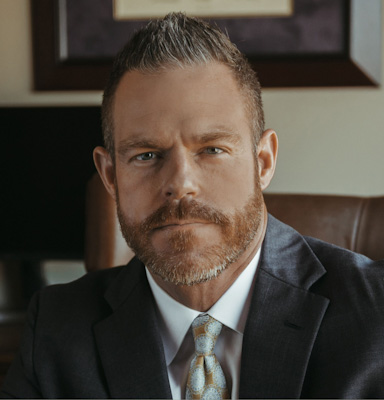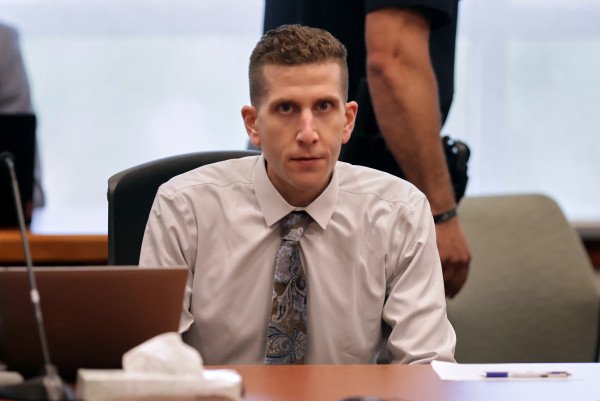“An eye for an eye only ends up making the whole world blind.” That quote, often attributed to Mahatma Gandhi, kept running through my head as I read social media reactions related to the plea deal of Bryan Kohberger, who was charged with the 2022 murders of multiple students at the University of Idaho.
Most of the responses regarding the plea agreement, which spared Kohberger the possibility of a death sentence, revolved around the need for revenge and reciprocated violence—in the name of justice. Despite all parties involved agreeing to the plea, many on social media were outraged. As an attorney, I dislike the public’s attempts to influence resolutions in criminal cases, particularly where they’re limited in their knowledge of both the case facts and the legal system.
A criminal studying criminology
In the early morning hours of Nov. 13, 2022, University of Idaho students Kaylee Goncalves, Madison Mogen, Xana Kernodle and her boyfriend Ethan Chapin were stabbed to death in an off-campus residence shared by the three women. Two other roommates, Bethany Funke and Dylan Mortensen, were unharmed.
With no apparent motive or suspect, local law enforcement and the university did their best to gather evidence and begin their investigation. However, official information was limited.
Additionally, the family of the victims pleaded with authorities to release information regarding the investigation, with Chapin’s father imploring “officials to speak the truth, share what they know, find the assailant and protect the greater community.”
However, as former Washington State University Police Chief Gary Jenkins accurately pointed out, investigators don’t want to release too much information and risk a leak to a suspect.
Or worse.
Law enforcement requested the public provide any video of the crime-scene residence and the surrounding area recorded around the time of the murders. One tip contained video of a white or light-colored Hyundai Elantra making multiple passes near the residence at the time in question. Surveillance footage showed a similar vehicle driving in the same pattern and then speeding away from the victims’ neighborhood.
The vehicle’s make and model led law enforcement to Kohberger, a criminology PhD student and teaching assistant at Washington State University. Federal investigators used DNA recovered from a tan, leather knife sheath on Mogen’s bed to compare potential matches in ancestral genealogical websites GEDmatch and MyHeritage.
Although this tactic proved beneficial for the investigation, it also violated a Justice Department policy that mandates investigators only use DNA databases “that provide explicit notice to their service users and the public that law enforcement may use their service sites.”
Regardless, Kohberger was arrested and charged with the four murders. The prosecution chose to seek the death penalty, and the case proceeded to trial.
That is, until the plea deal was reached.
The public doesn’t know what they don’t know
Much of the information the general public received about Kohberger and his crimes came from the internet and true crime documentaries. As I noted, the social media response was intense and extremely polarizing. Local media outlets reported on the investigation, with one saying, “Tik Tockers, psychics and people all over social media apps” were “spreading misinformation and rumors” around the investigation, while police pleaded with the public to trust verified information.
When Kohberger’s plea was announced, I had to wonder how many people voicing their complaints were educated on the facts of the case, and if so, where they’d received their information.
I can safely say that the public was not privy to all the facts and evidence. Before anyone goes half-cocked on that assertion, please keep in mind that rarely, if ever, does the citizenry have all the knowledge related to a criminal case. That is how the system is supposed to work.
Many out there, including some practicing attorneys, may believe that anything other than total and complete transparency is a travesty. However, those who have lived through a criminal trial are well aware of the evidentiary aspects that determine how and which facts become public.
Plea bargains are a necessary part of the justice system
This disconnect is why I get worked up over the backlash aimed at any potential plea agreement that would resolve a pending criminal case. Unless you are litigating the matter for the prosecution or the defense, you don’t know all the facts.
That goes for judges as well. Sure, they must review specific factual issues that come into conflict throughout the case; after all, they are the gatekeepers of relevance. Moreover, there are times when a particular statute might preclude certain evidence based on the parties’ perceptions. If the parties can’t agree on the statute’s application, a judge must resolve that disagreement.
Still, judges generally don’t know all the evidence, because not all the evidence in discovery is utilized by the parties at trial. This lack of knowledge is especially pronounced when a criminal case has not yet reached pretrial litigation. Nevertheless, I’ve had situations where a judge refused to accept a plea agreement that would resolve a criminal case without a jury trial.
In one instance, I had a plea initially rejected by a state court judge because he wanted confirmation that the accusing witness’ family approved of the resolution. Both the prosecution and I argued that the applicable law in Oklahoma doesn’t require the family to approve of the plea; the victim and their representatives must only be made aware of the resolution, and upon request, be offered an opportunity to be heard. That judge was unfamiliar with the facts of the case. These witnesses did not wish to be heard in court. He was unaware of the prosecution’s issues with their evidence and the fact that a plea was the only guaranteed option for the family to receive closure.
The point is pretty simple: The prosecution in a criminal case represents the people of a jurisdiction; it doesn’t represent random critics on social media. And it doesn’t represent the victims or their families. Most of the uninitiated don’t understand this maxim. Prosecutors sometimes forget it.
Regardless, we all need to appreciate it.

Adam Banner
Adam R. Banner is the founder and lead attorney of the Oklahoma Legal Group, a criminal defense law firm in Oklahoma City. His practice focuses solely on state and federal criminal defense. He represents the accused against allegations of sex crimes, violent crimes, drug crimes and white-collar crimes.
The study of law isn’t for everyone, yet its practice and procedure seem to permeate pop culture at an increasing rate. This column is about the intersection of law and pop culture in an attempt to separate the real from the ridiculous.

